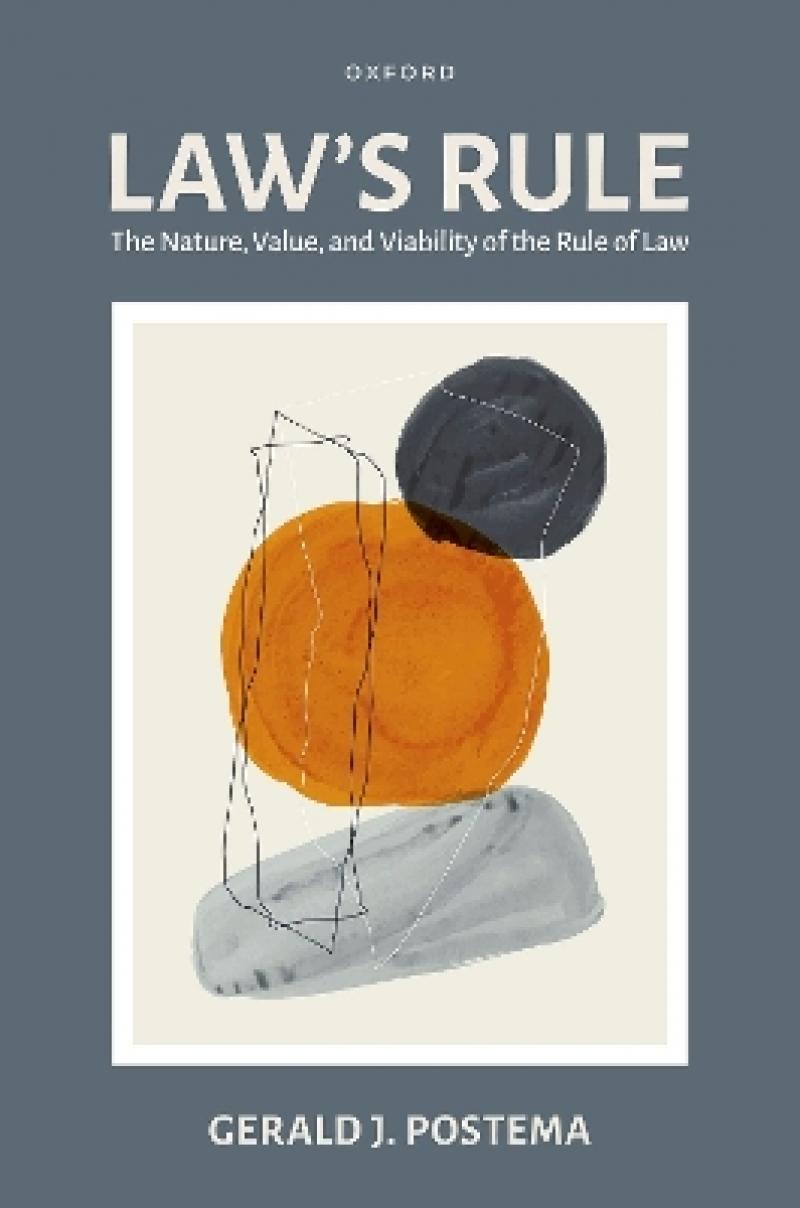Lon Fuller famously articulated eight "principles of legality," which he offered as a characterization of the "internal morality" of law: laws must be general, public, prospective, clear, compatible with each other, possible to obey, stable, and consistently applied.
John Oberdiek, Ethics
The rule of law, once widely embraced and emulated, now faces serious threats to its viability. To get our bearings we must return to first principles. This book articulates and defends a comprehensive, coherent, and compelling conception of the rule of law and defends it against serious challenges to its intelligibility, relevance, and normative force. The rule of law's ambition, it argues, is to provide protection and recourse against the arbitrary exercise of power using the distinctive tools of the law. Law provides a bulwark of protection, a bridle on the powerful, and a bond constituting and holding together the polity and giving public expression to an ideal mode of association. Two principles immediately follow from this core: sovereignty of law, demanding that those who exercise ruling power govern with law and that law governs them, and equality in the eyes of the law, demanding that law's protection extend to all bound by it. Animating law's rule, the ethos of fidelity commits all members of the political community, officials and lay members alike, to take responsibility for holding each other accountable under the law. Part I articulates this conception and locates its moral foundation in a commitment to common membership of each person, recognizing their freedom, dignity, and status as peers. Part II addresses serious challenges currently facing law's rule: finding a place in the legal system for equity, mercy, and effective responses to emergencies, taming the new leviathans of the digital world, and extending law's rule beyond national borders.
Les mer
Prologue
PART I CORE AND CONSEQUENCES
Chapter 1 The Idea of the Rule of Law
Chapter 2 Power, Accountability and Law's Toolbox
Chapter 3 Rule of Law's Principles: Sovereignty, Equality and Fidelity
Chapter 4 Moral Foundations
Chapter 5 Rule of Law's Partners: Democracy, Rights and Justice
Chapter 6 Realizing the Rule of Law
Chapter 7 Conditions and Limits
Chapter 8 Threats to Law's Rule
PART II CHALLENGES
Chapter 9 A Dialectic of Deference and Dissent
Chapter 10 The Trust Challenge
Chapter 11 Dilemmas of Discretion: Equity and Mercy
Chapter 12 Lawful Lawlessness: Crisis and Pardon
Chapter 13 Digital Domination: Taming the New Leviathans
Chapter 14 AI in Law or in Place of Law?
Chapter 15 Rule of Law Beyond Borders
Epilogue
Acknowledgments
Endnotes
Les mer
"Lon Fuller famously articulated eight "principles of legality," which he offered as a characterization of the "internal morality" of law: laws must be general, public, prospective, clear, compatible with each other, possible to obey, stable, and consistently applied." -- John Oberdiek, Ethics
Les mer
Gerald J. Postema is Professor Emeritus of Philosophy at University of North Carolina at Chapel Hill. Doctor Honoris Causa, University of Athens. He is a Fellow of Corpus Christi College, Cambridge (2013-13); a Guggenheim Fellow (2005-6); a Rockefeller Fellow, Bellagio (2001); and a Fellow of the Netherland Institute for Advanced Studies (1996-7). He has held visiting posts at the University of Cambridge, the European University Institute
(Florence), the University of Athens, Yale University, and the University of California, Berkeley.
Les mer
Selling point: Provides historical and theoretical foundations and addresses the most pressing challenges to the rule of law
Selling point: Applies to both national and transnational communities, and governmental and non-governmental wielders of power
Selling point: Addresses current threats to the viability of rule of law, including erosion of key institutions and norms and coarsening of moral culture
Les mer
Produktdetaljer
ISBN
9780190645342
Publisert
2023
Utgiver
Oxford University Press Inc
Vekt
680 gr
Høyde
238 mm
Bredde
163 mm
Dybde
30 mm
Aldersnivå
UP, 05
Språk
Product language
Engelsk
Format
Product format
Innbundet
Antall sider
394
Forfatter
